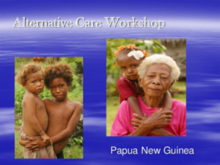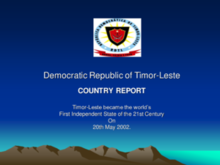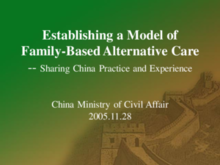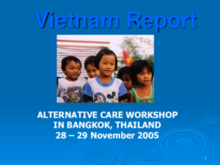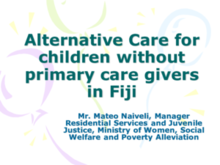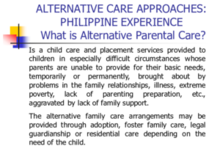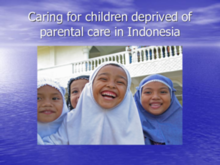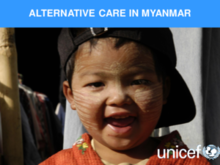Displaying 1661 - 1670 of 1798
This presentation was given at the Alternative Care Workshop in Bangkok in November 2005.
This presentation, delivered at the Alternative Care Workshop in Bangkok in November 2005, provides an outline of alternative care in the Philippines.
This presentation was given at the Alternative Care Workshop in Bangkok in November 2005.
This presentation was given at the Alternative Care Workshop in Bangkok in November 2005. It provides an overview of the situation for children without parental care in China, the legal framework for child protection in the country, and the social welfare institutions that support children's care.
This presentation was given at the Alternative Care Workshop in Bangkok in November 2005.
This presentation was given at the Alternative Care Workshop in Bangkok in November 2005. It provides an overview of the situation of children without parental care, or primary caregivers, in Fiji and the child welfare system in the country.
This presentation, delivered at the Alternative Care Workshop in Bangkok in November 2005, provides an outline of alternative care in the Philippines.
This presentation provides an overview of the situation in Indonesia for children without parental care in a post-tsunami context and the alternative care system in the country.
This presentation, delivered at an Alternative Care Workshop in Bangkok in November 2005, provides an outline of alternative care in Laos.
This presentation from UNICEF provides an overview of the situation in Myanmar, particulary for children without parental care, and the alternative care system, or lack thereof, in the country.

